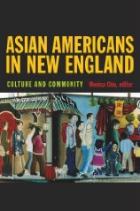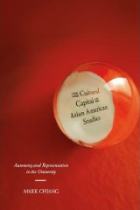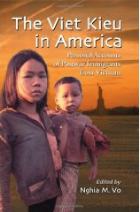November 19, 2009
Written by C.N.
New Books: Different Aspects of Asian American Life
As part of this blog’s mission of making academic research and data more easily accessible, understandable, and applicable to a wider audience and to practical, everyday social issues, I highlight new sociological books about Asian Americans and other racial/ethnic groups as I hear about them. A book’s inclusion is for informational purposes only and does not necessarily mean a full endorsement of its complete contents.
While these three new books focus on their own particular detail of Asian American life, together they contribute to a larger and fuller understanding of the variety of issues that connect all Asian Americans, and Asian Americans to the rest of American society:
Asian Americans in New England: Culture and Community, edited by Monica Chiu (University Press of New England)

This collection, the first to address Asian and Asian Americans’ contributions to New England, highlights a broad range of Asian American communities and historical experiences. From the poignant writings of a young Chinese immigrant to the influence of hip-hop in a New Hampshire Lao community, this original and unique collection seeks to establish a regional template for the study of Asian American lives and art far from the West Coast.
These essays provide not just a record of particular achievements but a full and vigorous engagement with Asian American culture along with an analysis of the depiction of Asian Americans in New England. This is an important and timely collection highlighting the creativity and diversity of one of the fastest-growing minority populations in the region.
The Cultural Capital of Asian American Studies: Autonomy and Representation in the University, by Mark Chiang (New York University Press)

Originating in the 1968 student-led strike at San Francisco State University, Asian American Studies was founded as a result of student and community protests that sought to make education more accessible and relevant. While members of the Asian American communities initially served on the departmental advisory boards, planning and developing areas of the curriculum, university pressures eventually dictated their expulsion. At that moment in history, the intellectual work of the field was split off from its relation to the community at large, giving rise to the entire problematic of representation in the academic sphere.
Even as the original objectives of the field have remained elusive, Asian American studies has nevertheless managed to establish itself in the university. Mark Chiang argues that the fundamental precondition of institutionalization within the university is the production of cultural capital, and that in the case of Asian American Studies (as well as other fields of minority studies), the accumulation of cultural capital has come primarily from the conversion of political capital.
In this way, the definition of cultural capital becomes the primary terrain of political struggle in the university, and outlines the very conditions of possibility for political work within the academy. Beginning with the theoretical debates over identity politics and cultural nationalism, and working through the origins of ethnic studies in the Third World Strike, the formation of the Asian American literary field, and the Blue’s Hanging controversy, The Cultural Capital of Asian American Studies articulates a new and innovative model of cultural and academic politics, illuminating the position of ethnic studies within the American university.
The Viet Kieu in America: Personal Accounts of Postwar Immigrants from Vietnam, edited by Nghia M. Vo (McFarland Publishing)

Vietnamese make up one of the largest refugee populations in the United States, some arriving by boat in 1975 after the fall of Saigon and others coming in the 1990s. This collection of 22 essays by 14 authors illuminates Vietnamese-American culture, views of freedom and oppression, and the issues of relocation, assimilation and transition for two million people. It contains personal experiences of the Vietnam War, life under Communist rule, and escape to America.

